
Standing at a podium in the Edward M. Crough Center for Architectural Studies, Kevin Rensch, a master’s philosophy student, asks the audience to “Imagine for a moment you were born in the early 20th-century, and you grew up in Nazi Germany before the start of World War II. Do you join the resistance against the Nazis or do you join them in committing crimes against the Jews and others?”
This is the first time Rensch has presented his research in a public forum. In the first minute of his talk he’s already grabbed the attention of audience members who have come out on Catholic University’s first Research Day to hear from more than 250 student, faculty, and staff presenters in varying locations across campus.
“Try to reflect on how you might act. If you were presented with such a moral test, on which side of history would you fall?”
Rensch says he was thrilled when his research project, “Moral Luck: Should We be Concerned?” was selected by the Research Day planning and review committee for an oral presentation. “It was very affirming. It meant the committee thought my research was valuable and worth sharing with the University community,” he said.
His faculty advisor on the project, Angela Knobel, associate professor of philosophy, was among the first in a long line of faculty and students waiting to congratulate him and engage in further philosophical discussion about moral luck when the session was over. “Kevin will learn more about a topic than he needs to just to satisfy his own intellectual curiosity,” she said.
Classes were cancelled at Catholic University on April 15 in order to celebrate intellectual curiosity campuswide. “We imagined Research Day as an opportunity to bring faculty and students together on one day and across all disciplines to share their work,” said Melissa Grady, associate professor of social work and chair of the Research Day planning committee. “In academia, we tend to work within silos. But just by serving on this committee and reviewing proposals, I learned about the fascinating work going on in physics and theology and music; just about every field of study at the University.”
Standing in Heritage Hall at the start of Research Day, Grady looked around at aisles of more than 100 poster presentations. “This is just what we wanted to happen,” Grady said. Students, faculty, and staff stood at their boards proudly explaining their hypotheses, methods, and findings to hundreds more who jammed the aisles to listen.
Disciplines were intermixed. A musical theatre undergraduate student described her study of the 50 longest-running shows on Broadway, while a graduate biology student described the design of a potential novel vaccine for HIV. Down the aisle a senior social work student questioned, “Why aren’t all students succeeding in school?” in her analysis of the negative effects of childhood poverty and the role of social workers.
The campus took on a festival-like feel with balloons tied to the many academic buildings hosting sessions of oral and poster presentations. Student performers provided a musical background at the tulip-lined Pryzbyla Plaza, where tables were set up for lunch provided by food trucks invited to campus for the day.
“When you do something for the first time, there is always that fear, ‘What if no one comes,’” said University Provost Andrew Abela. “Clearly we didn’t have that problem.”
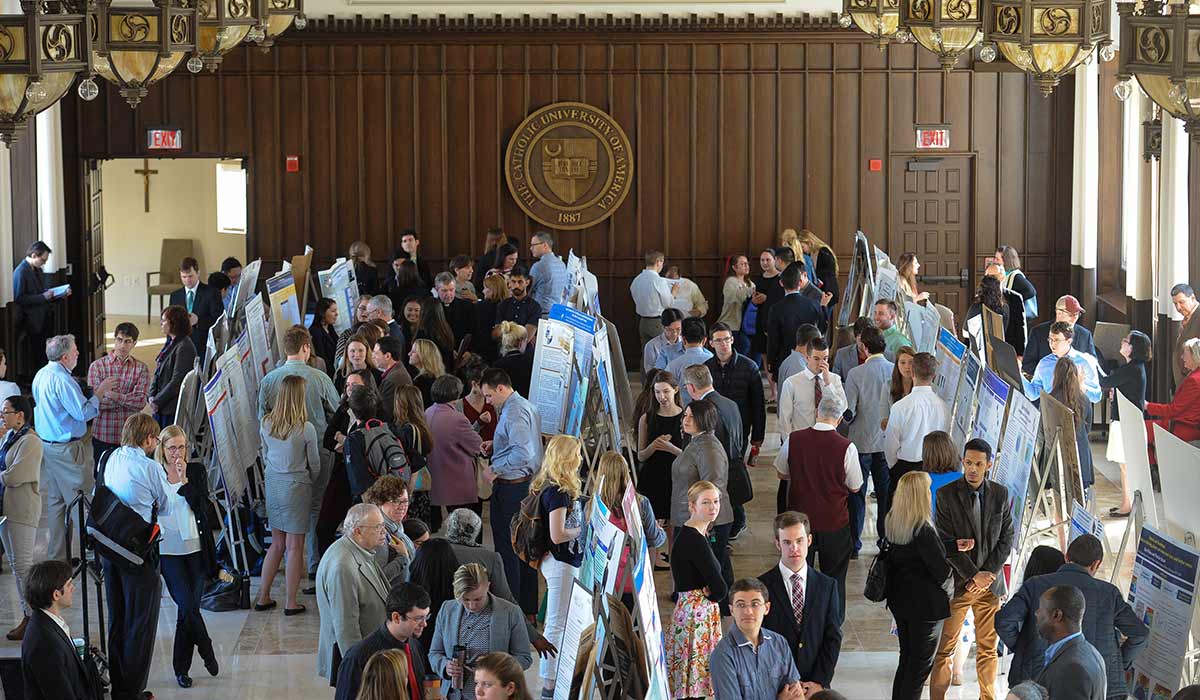
University Research Day began with more than 100 poster presentations in Heritage Hall where undergraduate, graduate, and faculty researchers explained their projects to members of the Catholic University community.
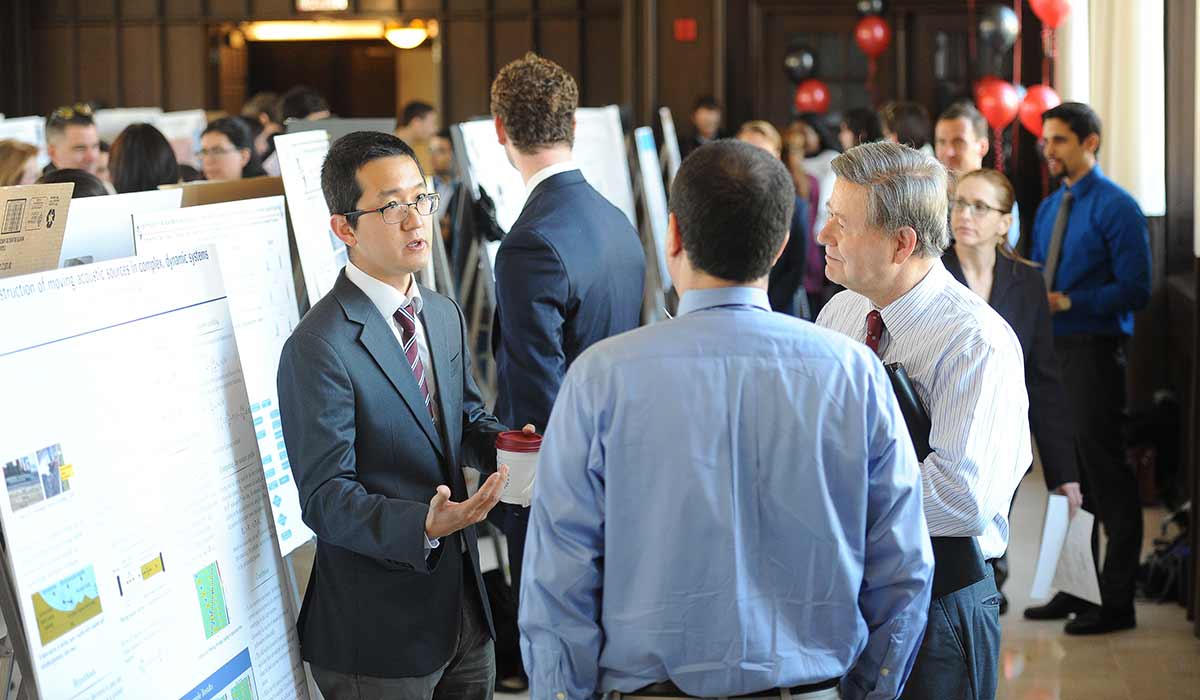
A student researcher explains his research to members of the University faculty, including James Greene, dean of graduate studies (right).
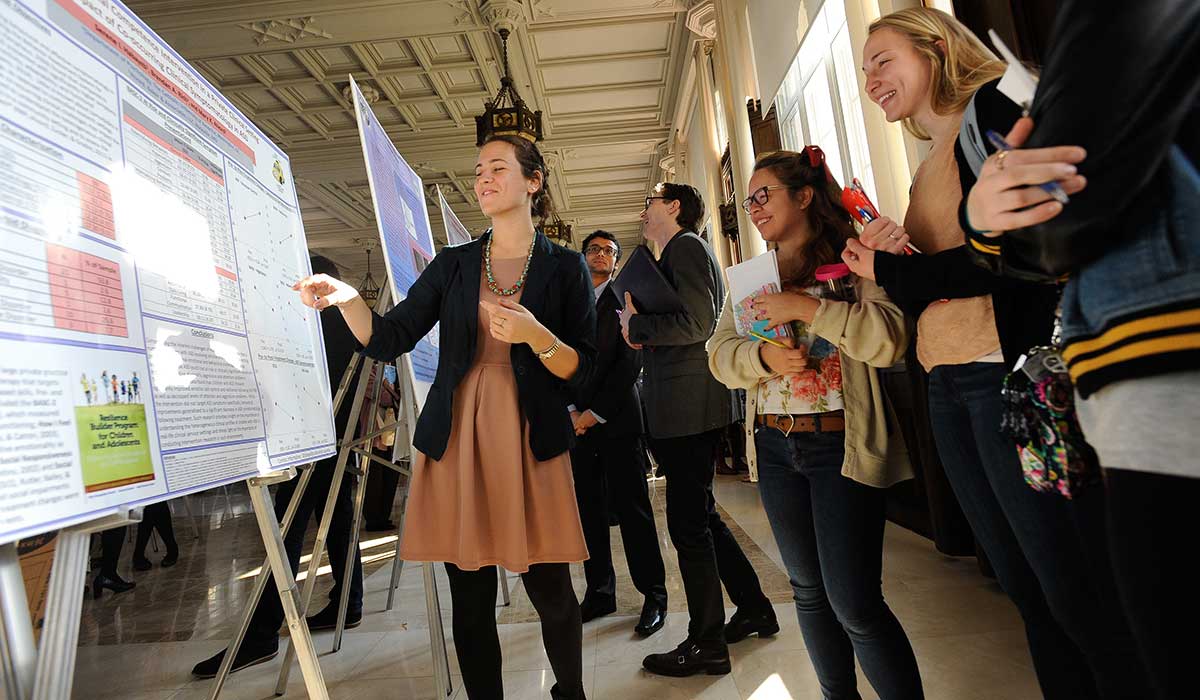
Researchers were challenged to present their work in a way that it could be understood by students and faculty both within and outside of the researcher’s area of specialty.
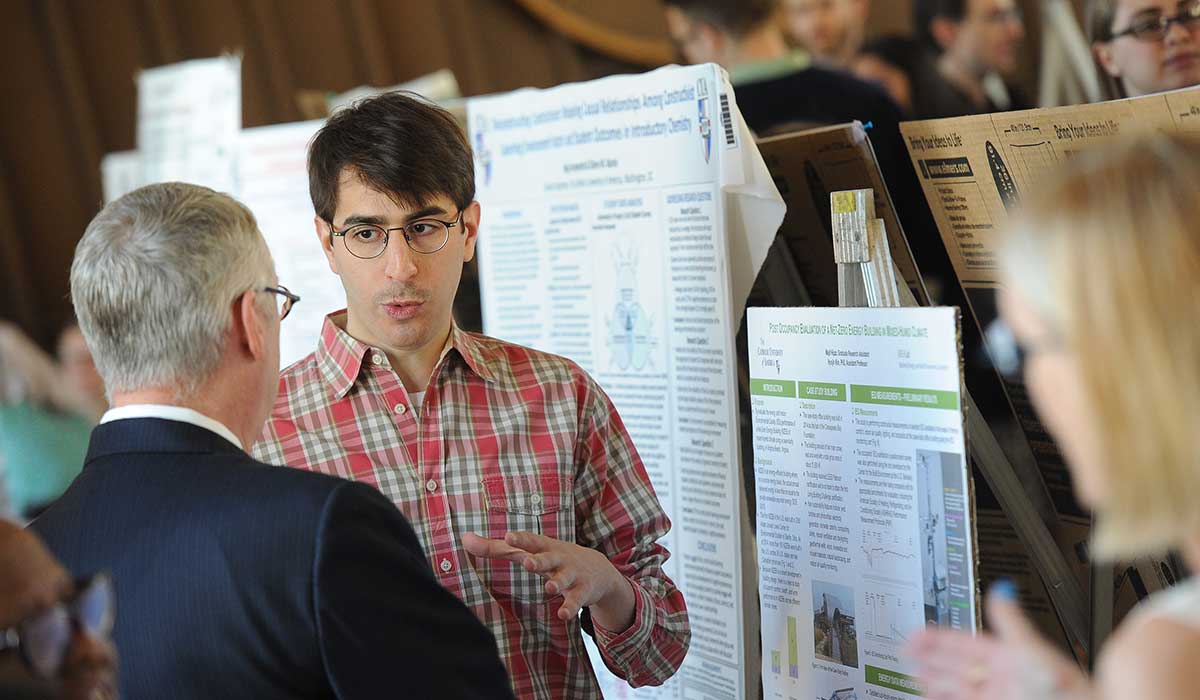
Architecture student Majd Hijazi explains his research project to Herbert Hartmann, clinical assistant professor of philosophy.
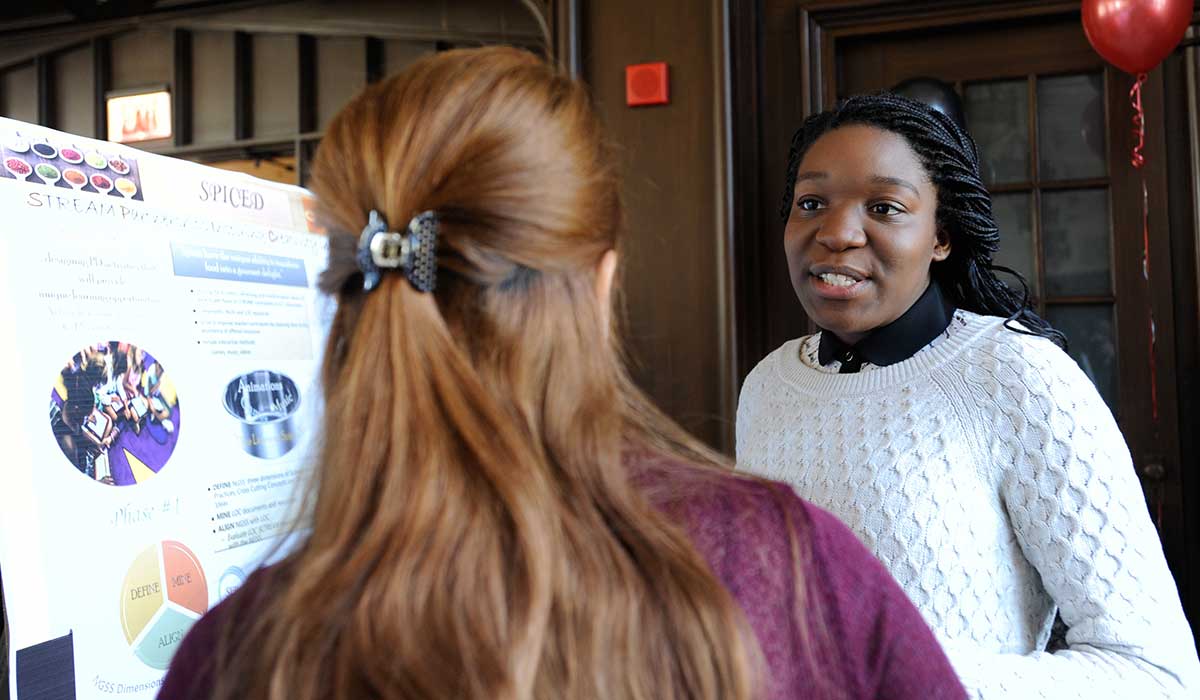
Student researcher Kelly Omotade (right) explains her project on SPICED Game Design for Enhanced STEM Outreach to a fellow student.
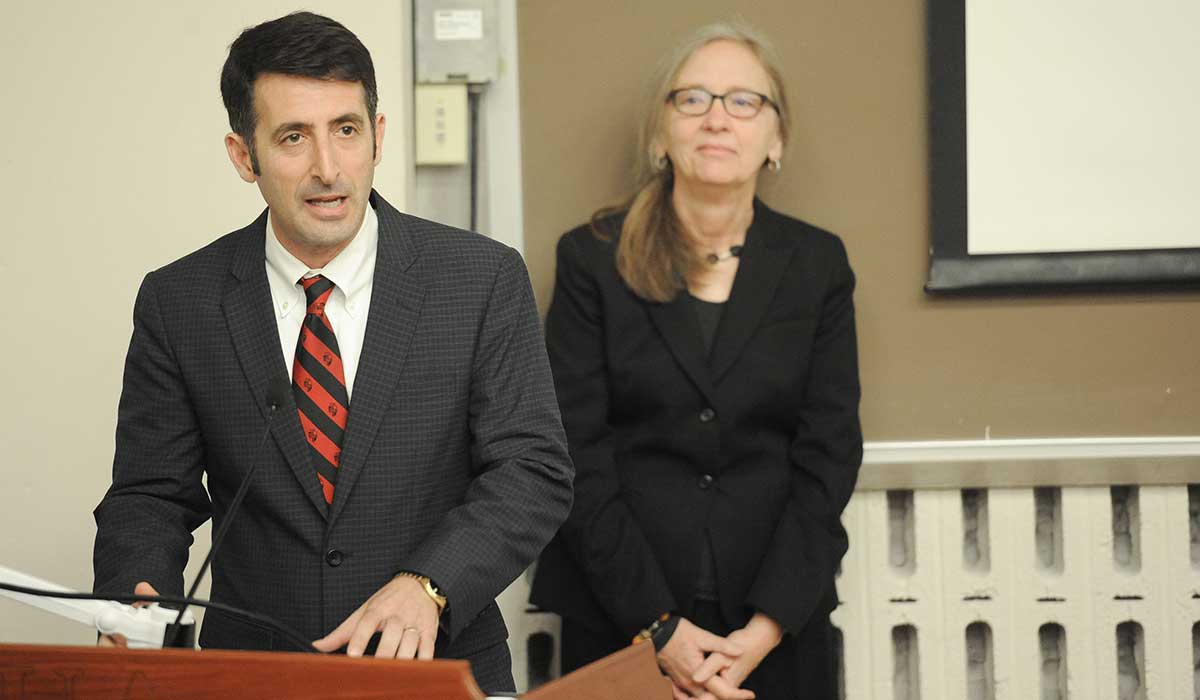
Provost Andrew Abela delivers opening remarks before introducing morning keynote speaker Robin Darling Young, associate professor of theology.
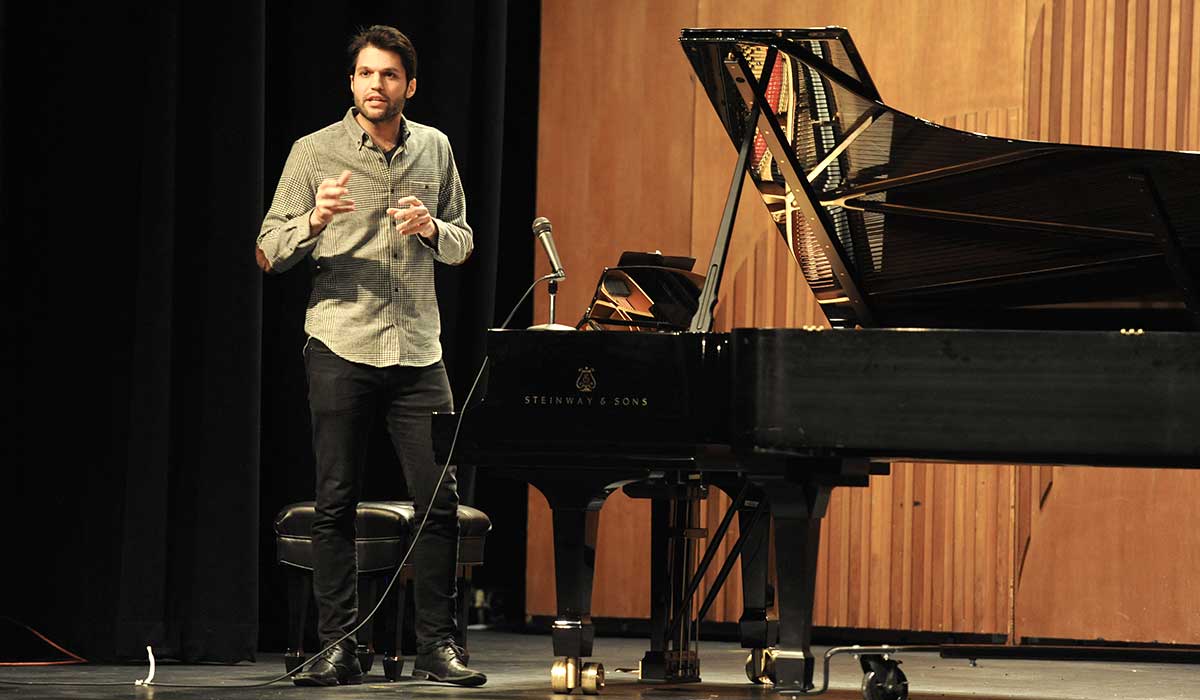
Music graduate student Jason Solounias talks about his research into the Melodramas of Franz Liszt before sitting down at the piano to play a selection.
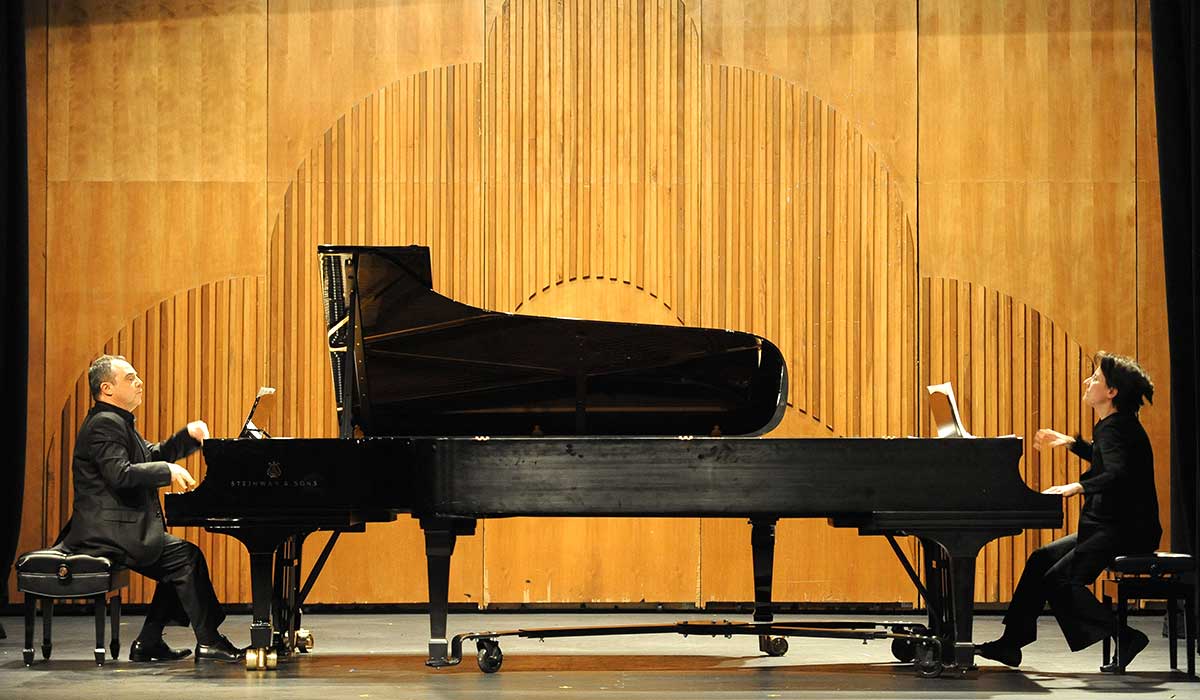
Ivo Kaltchev, music professor and head of the Piano Division, and Ralitza Patcheva, piano instructor, perform Visions de l’Amen for Two Pianos by Olivier Messiaen